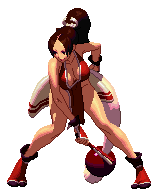I think the kotaku bit saying the art was created by a teenage boy was tacky and lazy at best, and the polygon review title/characterization was barely better -- while the reviewer's underlying observations about how alienating the art was resonated with me, I actually cringed at her phrasing about it being a "teenage boy's fantasy." Like, is it really necessary to call something childish in order to critique it? If anything, it seems to me that this dismisses the very real ways in which actual adult men (not all of them, and not exclusively men, etc.) sometimes also help to perpetuate sexism.
And no, I don't believe that enjoying something that has sexist elements makes one a sexist, any more than finding those sexist elements alienating makes one a prude

And, to be clear, I'm not saying "the game is sexist" or even necessarily "the art is sexist," because I think that's an oversimplification of what sexism is and what it means in the broader cultural context. In my mind, the most important thing in these discussions is to stay respectful of other people's life experiences, and not to dismiss someone's point of view about something simply because it doesn't comport with one's own individual experience. This admittedly gets a bit trickier to navigate as you get into characterizations of broader social trends, but honestly, *this* discussion has sadly gotten so bogged down at this point that it'd be a breath of fresh air for it to at least come back "up" to the level of nitpicking about what counts as "privilege" and what doesn't.



